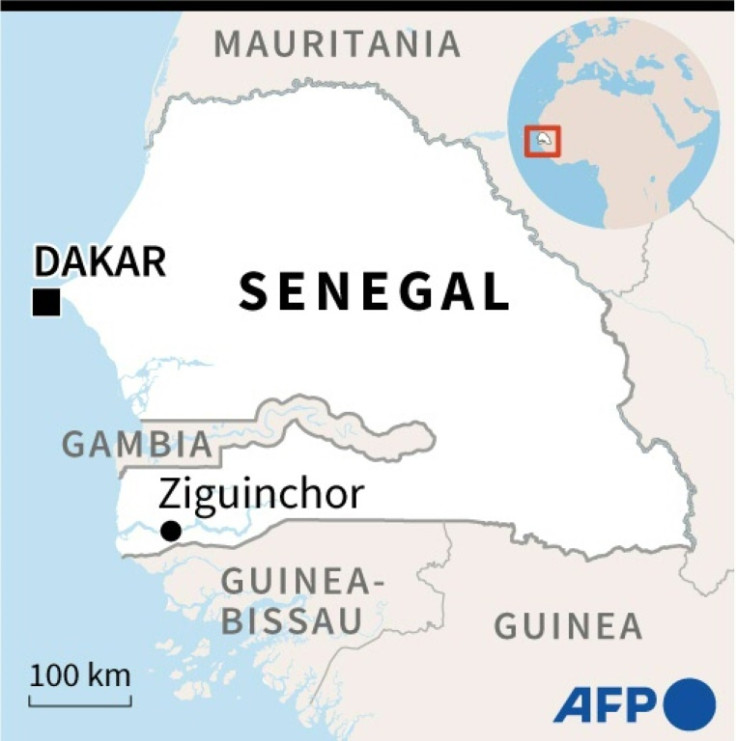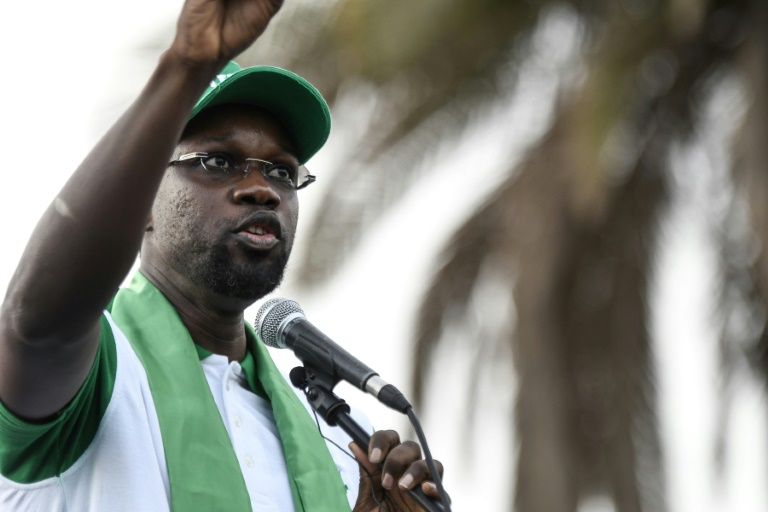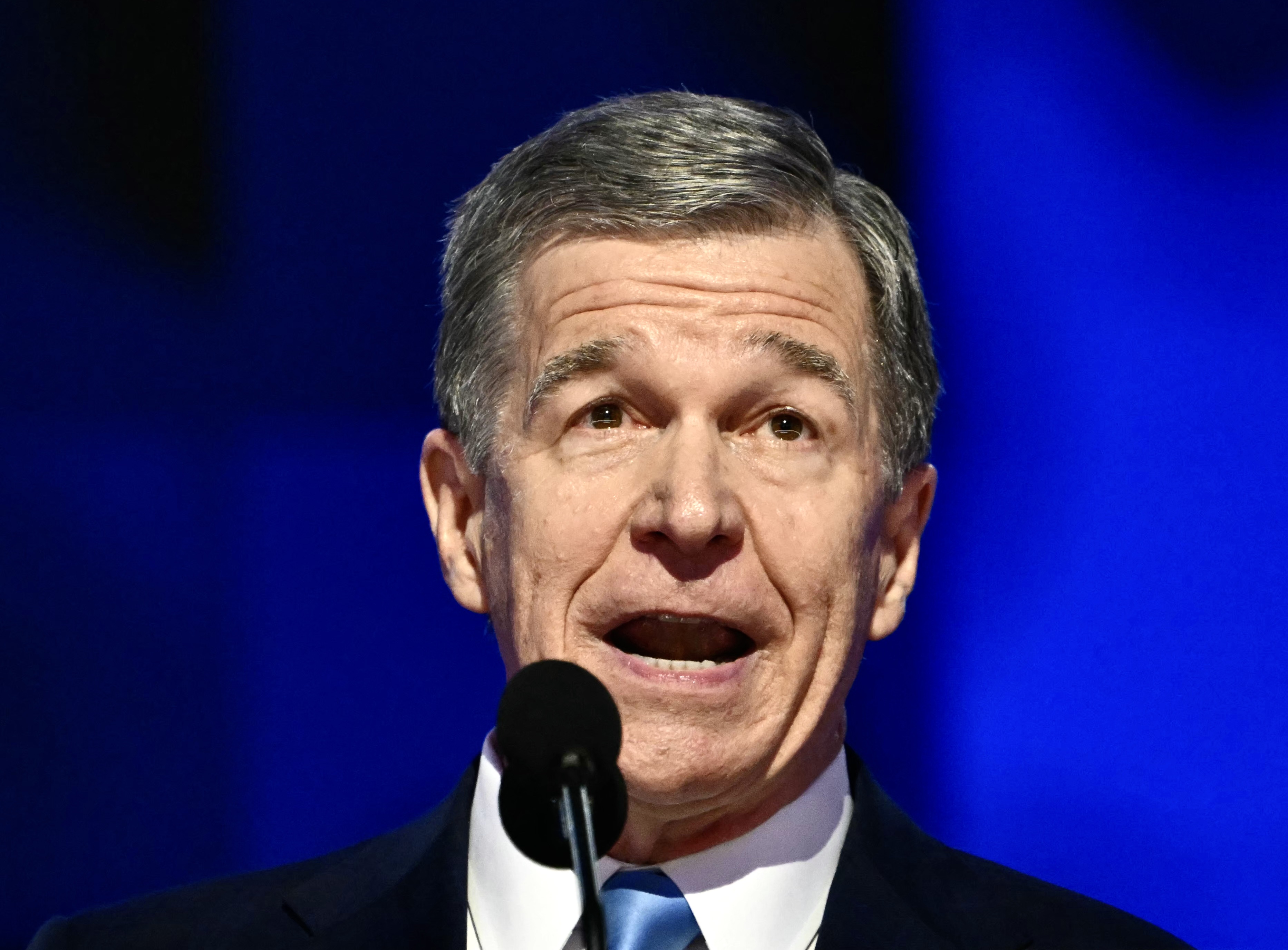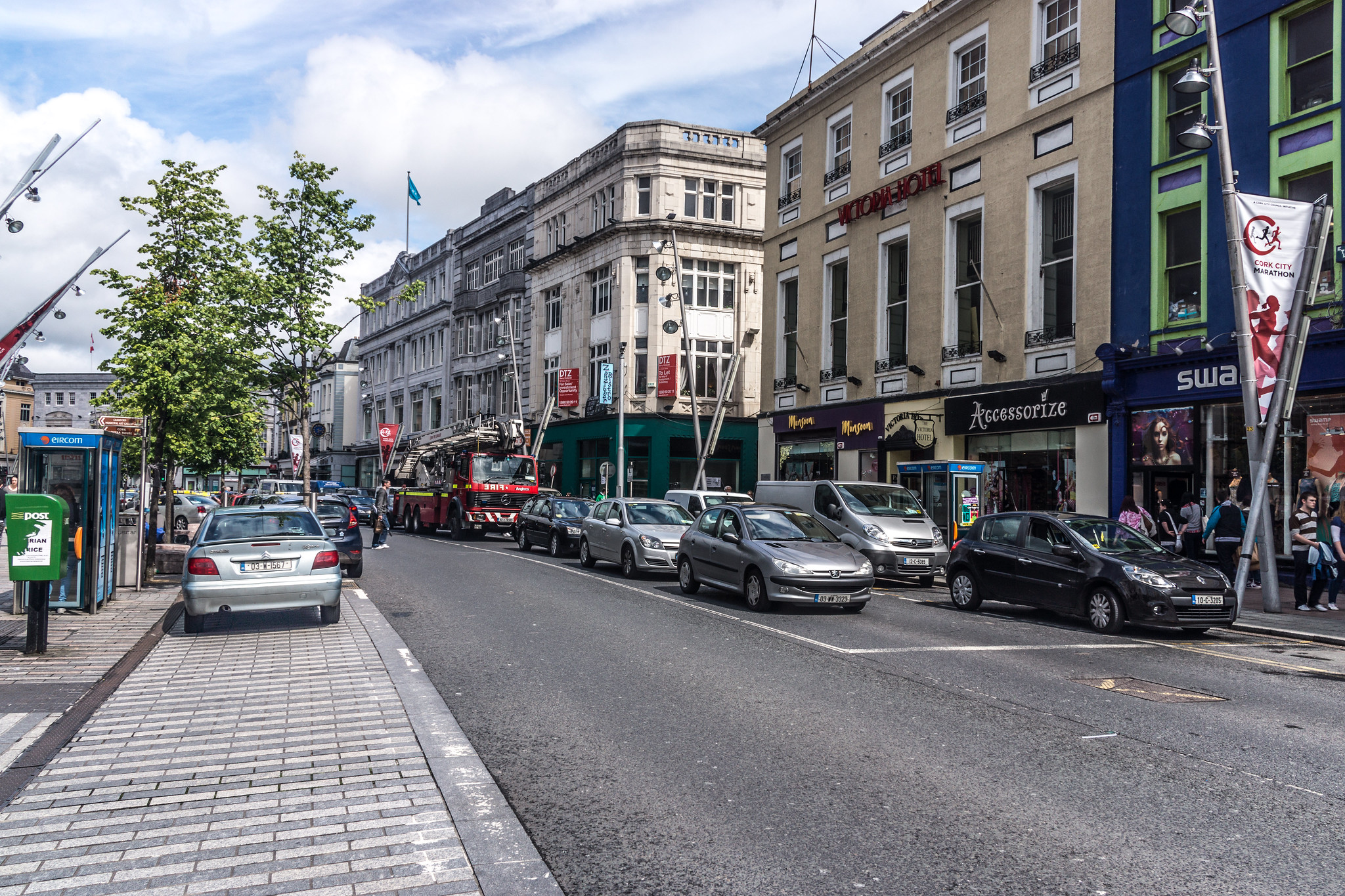AFP
Leading Senegalese opposition figure Ousmane Sonko on Monday was charged with fomenting insurrection and his party dissolved, stoking concerns about further unrest two months after fatal clashes.
Sonko, a presidential candidate and President Macky Sall’s fiercest critic, has faced a string of legal woes, which he claims have been designed to keep him out of politics.
His sentencing in absentia to two years in prison last month in a moral corruption case sparked clashes that left 16 dead according to the government, 24 according to Amnesty International, and 30 according to Sonko’s PASTEF party.
But he had not been jailed despite that sentencing.
On Friday he was arrested on new allegations tied to comments he has made, rallies he has held, and other episodes since 2021.
Sonko “has been charged and placed in custody”, lawyer Ousseynou Ngom told AFP on Monday.
The new charges include undermining state security, criminal association with a terrorist body, disseminating false news and theft.
Less than two hours after Sonko’s indictment, the interior minister announced that PASTEF would be dissolved for having “frequently” called for insurrection, leading to destruction and the loss of life.
Senegal’s public prosecutor said Saturday that this new legal affair had “nothing to do” with the high-profile moral corruption case for which Sonko was sentenced on June 1.
That verdict makes him ineligible to context next year’s presidential election.
But his lawyers have argued that his arrest on Friday cancelled out his conviction in the moral corruption case, because he had been tried in absentia.
“It’s a farce,” Cire Cledor Ly, another of Sonko’s lawyers, told reporters.
“It’s a plot that was formed, thought out, planned and executed.”
Sonko on Monday continued a hunger strike he began a day earlier, his lawyers said.
They said there was no limit to his detention time as the new charges are criminal.
“The judge can retain him until the case is heard”, Babacar Ndiaye, one of the lawyers, said.
Sonko was arrested on Friday after claiming on social media that security forces had been filming him outside his house and that he had snatched one of the phones to ask them to delete it.
Dakar residents interviewed by AFP said they worried about fresh demonstrations.
On Monday, authorities announced they were restricting mobile internet access due to “hateful and subversive” messages on social media.
Sonko had called, a day earlier, on Senegalese people to “stand up” and “resist… oppression”.
The internet was restricted for six days during the unrest in early June.
In a post on Twitter, which is being rebranded as X, Amnesty International denounced the internet restrictions, calling them an “attack on freedom of information”.
But as of Monday afternoon, few incidents had been reported around the capital.
In Ziguinchor, the major southern city of which Sonko is mayor, clashes broke out Monday between his supporters and the police, an AFP journalist reported.
Groups of young people threw stones at police, who tried to disperse them with tear gas canisters, the journalist said.
A former civil servant, Sonko rose to prominence in the 2019 presidential election, coming third.
He has portrayed Sall as a would-be dictator, while the president’s supporters say Sonko has sown instability.
Sall in early July eased tensions in the normally stable West African nation by announcing he would not seek a controversial third mandate, following months of ambiguity and speculation about his intentions.

AFP







